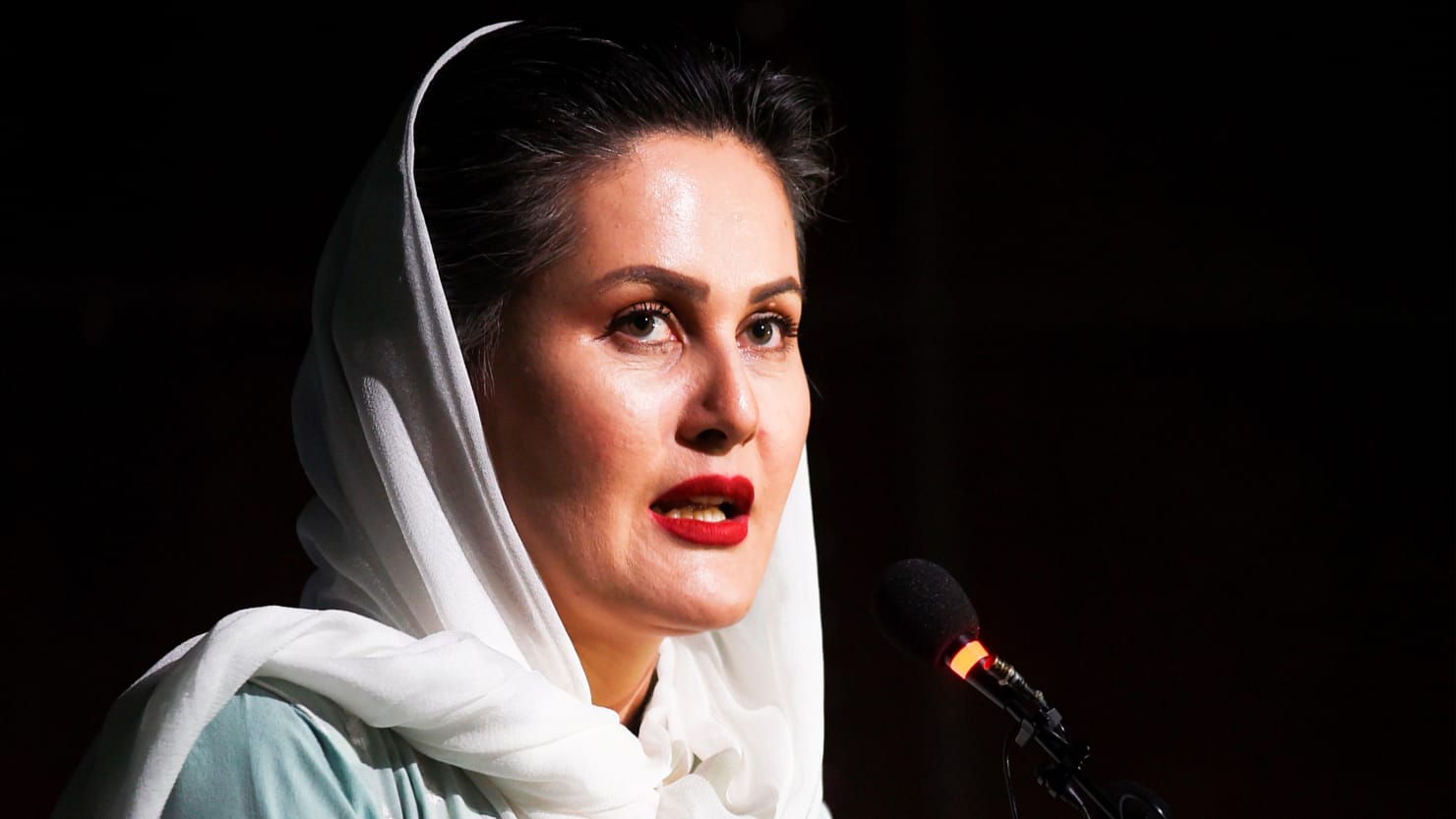
A well-known Afghan filmmaker’s emotional videos from Kabul as the Taliban took control over the weekend were met with sympathy and support from much of the international community. But on Chinese social media, Sahraa Karimi’s dramatic dispatch was roundly mocked.
In the video, the independent film director was seen running around and shouting to people, “The Taliban is coming. Why are you laughing?”
For many, her panic echoed the widespread concerns about what will become of Afghan women with the Taliban in charge.
“Where are you going? Go home soon. The Taliban is coming to Kabul. They are in town,” Karimi yelled to residents in her video. A few days earlier, Karimi had penned a letter to the world urging protections for Afghan women, children, and artists from the Taliban.
Though many audiences on Weibo, the equivalent of Twitter in China, expressed condolences for the Afghan people and wished them well in such a tumultuous time, some struck a rather unsympathetic and critical tone, bashing Karimi for what they saw as her cozying up to the West. Specifically, they took issue with Karimi saying: “I want to film this for BBC to broadcast” in response to someone asking “Why are you running away?”
“It’s self-directed and performed,” one commentator said. Another asked, “How can she run away while putting on a show like this? Is she preparing for a refugee entry to Europe and America?” “Did you notice? She’s so similar to those stinky feminists,” a third comment read.
Several commentators called Karimi a “Gongzhi,” literally translated to “public intellectual,” which has become a laughable, derogatory label on China’s internet, referring to a group of highly educated, liberal-minded people who criticize the society they live in. To these Chinese netizens, Karimi’s background—she grew up in Iran till she was 27— made her an outsider of Afghanistan, thus stripping her of the right to represent Afghan people and comment on the country’s affairs. Commentators also singled out Karimi’s red-stone ring, manicured nails, and trimmed eyebrows in the video to suggest that she enjoyed a privileged life funded by Western powers.
“Those who want to flee only after the Taliban entered town are America’s lackeys and treasonous capitalists who deserve to be hanged on street lights,” a comment read.
Some also compared Karimi to the Chinese writer Fang Fang, whose diary documenting her life in Wuhan’s early days of the coronavirus outbreak angered the Chinese public, and the elites who left China for Taiwan, Hong Kong, America, and Europe after the Chinese Communist Party took hold of China in 1949.
Amid the tide of mockery and ridicule, some internet users defended Karimi’s account and praised her bravery in speaking out, as well as her films documenting women’s lives in Afghanistan. But these reactions were quickly attacked as pro-American and, by extension, unpatriotic.
To many people in China, the chaos unfolding in Afghanistan is proof that the U.S. cannot be trusted as an ally. On Tuesday, China’s state-run newspaper the Global Times published an opinion article titled “Taiwan Government Should Learn From Afghanistan’s Lesson.” The article listed a series of instances where the U.S. withdrew troops and left locals to defend themselves, including from Vietnam in 1975 and northern Syria in 2019. It snidely urged those who support Taiwanese independence to not “flatter yourself,” and suggested that when the time comes for China to unify Taiwan with force, the U.S. will not help Taiwan’s Democratic Progressive Party.
Before the Taliban swiftly took control last weekend, China had already taken measures to ensure China’s security interest in the region. In July, Foreign Minister Wang Yi hosted the Taliban in Tianjin to show friendliness and goodwill. During the meeting, Wang promised that China would not interfere in Afghanistan’s internal affairs and recognized the Taliban as an “important military and political force” in exchange for the group’s security promise. Wang said China hopes the Taliban could “deal resolutely” with the East Turkistan Islamic Movement, a group China claims is threatening its national security and pushing for Xinjiang’s independence.
“The Taliban must have been supported by people at the bottom. Otherwise it wouldn’t have made such a comeback after 20 years,” a comment on Weibo read. “At least the Afghan people stepped on the path of self-rule. Isn’t it good?”
Article From & Read More ( Chinese Social Media Users Brutally Mock Afghan Filmmaker's Taliban Panic - The Daily Beast )https://ift.tt/3iWZNNW
World
Bagikan Berita Ini














0 Response to "Chinese Social Media Users Brutally Mock Afghan Filmmaker's Taliban Panic - The Daily Beast"
Post a Comment